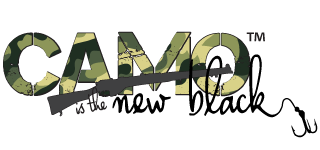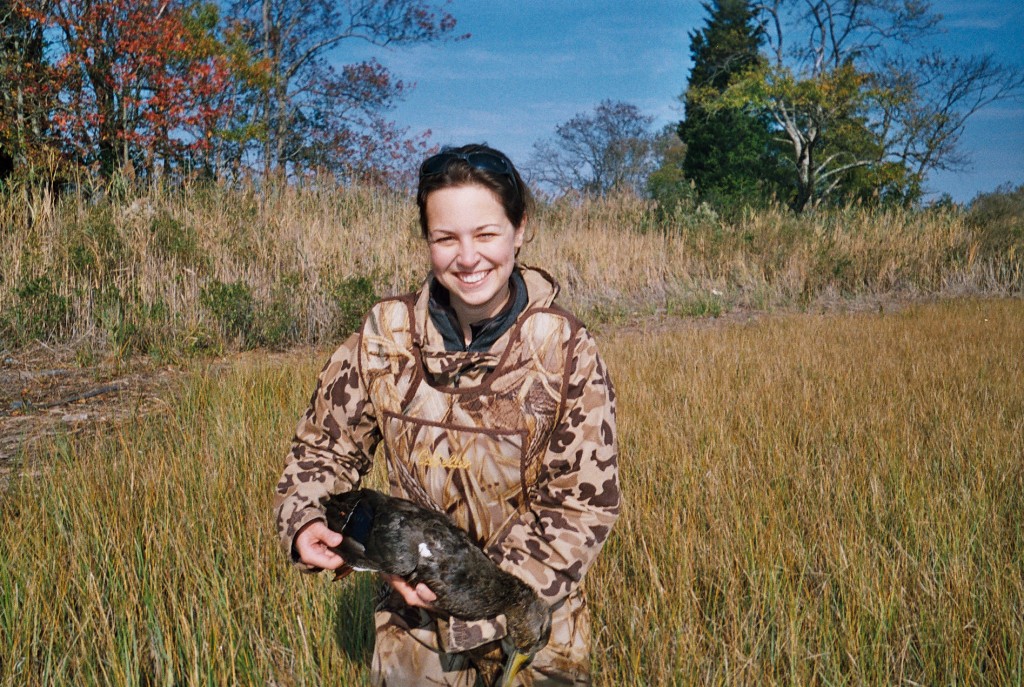
You might say my story is an unlikely one.
I grew up in suburban Connecticut, where many of my peers’ interests centered around video games or the mall. Yet I was always happiest exploring the neighborhood woodlot
and nearby marshes. In college I studied biology at a liberal arts school in Massachusetts that specialized in producing future physicians. Instead, I chose a career in wildlife conservation. I took up hunting about six years ago, but going by demographics alone (as a young, suburban, college-educated woman from the northeast) – it’s reasonable to predict that I might have instead held some anti-hunting views.
I confess I laughed out loud at part of Jodi Stemler’s recent post here, describing her rush to put her New Jersey upbringing in context for her wildlife colleagues. I could instantly relate to that feeling of needing to explain myself. But I didn’t grow up on a farm or come from a family of hunters and anglers. So how did I get here? I don’t think it’s because of anything especially unique about me.
As I see it, it came down to this: I had some truly great mentors.
My older sister, Kate, has always been an explorer, with an infectious, adventurous spirit and a love for the outdoors. She even taught wilderness survival classes for a time. Kate taught me real skills – like how to pitch camp, read maps, tie knots – but I think the lessons in self-confidence and resourcefulness were actually the most important to me as a young woman. I also think those lessons came in handy later when trying to assuage my mom’s (not necessarily unfounded) concerns about my ability to feed myself if I became, as she put it, a “professional environmentalist.”
In college, as I was one of a handful of non-pre-meds, a new ecology professor invited me to be his assistant. I worked with him at a field station on some fascinating stream ecology research, yet I knew it wasn’t quite what I was looking for. My research advisor was incredibly supportive, and encouraged me to keep looking for the field that was the right fit. He suggested I peruse a variety of research articles to find the kinds of projects that appealed to me. Oddly enough, it took me stumbling across a copy of the Journal of Wildlife Management to discover that wildlife management was even a profession! Almost instantly though, I knew the articles I found were exactly the kinds of solutions-oriented natural resource projects I was looking for. Even when a few of my professors were skeptical of my new-found path, my research advisor and several others gave me lots of encouragement to blaze ahead.
I jumped right into graduate school, doing a project on bobwhite quail in New Jersey (of all places). The early days were like a whole new world, with a new language that included concepts like the North American model of wildlife conservation and sustainable yield. Though my professors and peers were really helpful and supportive, it was a member of my graduate committee – Paul, a biologist with the New Jersey Division of Fish and Wildlife – who really became my mentor. Paul became my interpreter for this new language. He taught me technical aspects of wildlife management, but also about the ethics and history, as well as lessons in leadership and professionalism. He also took me out the day I harvested my first duck – a black duck, at Forsythe National Wildlife Refuge. I remember feeling that day more alert and engaged in my surroundings than ever before. For the first time, I had intimate knowledge of where my next meal came from. And at the end of the day, putting away the duck stamp with my signature marking up a handsome pair of pintails, I felt like a direct participant in conservation.
I continue to feel incredibly grateful for, and frankly, a little bit surprised by, how eager my friends and colleagues are to take out a novice hunter. So many have gone out of their way to include me in some fantastic experiences. From chasing sharp-tails in the Nebraska Sandhills, to doves in the rolling plains of Texas, to my first deer on a Pennsylvania farm, I’ve seen some beautiful places and built what I hope will be some life-long friendships. And I wonder who else is out there, like I was, waiting for the invitation.
That’s why I’m so encouraged by all the great work going on to reach out to more people. From efforts to get kids outside, to outdoor skills workshops for women, to ¡Vamos A Pescar!, to so many others – the future of conservation is being strengthened by casting a wider net for conservationists.
So maybe my story isn’t so unlikely after all. Conservationists and sportswomen can come from anywhere – we just might need a little help from our friends.
Bridget Collins is the Agriculture Policy Coordinator for the Association of Fish and Wildlife Agencies. She lives and works in Washington, DC, though tries to get out with friends often to explore the great outdoors.






Great story! I love Bridget’s voice in this piece!